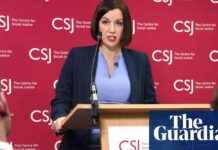Despite the expectation that students should have mastered basic reading skills by third grade, many continue to struggle with reading well into upper elementary school and beyond. According to a new study commissioned by the Advanced Education Research and Development Fund (AERDF), which is a national nonprofit organization focused on evidence-based breakthrough innovations in PreK-12 education, 44 percent of grade 3-8 teachers report that their students frequently face challenges when reading instructional materials in their classrooms.
To gain a better understanding of why older students still struggle with reading, the AERDF’s Reading Reimagined program partnered with the ETS Research Institute to investigate the relationship between foundational literacy skills and reading comprehension. The study revealed that the decoding threshold plays a significant role in older students’ reading difficulties, acting as a barrier to achieving reading proficiency.
The decoding threshold refers to the point at which students can read text accurately and efficiently, enabling them to comprehend grade-level material independently. For students whose decoding skills fall below this threshold, reading comprehension becomes a challenge, even with continued instruction. This finding sheds light on why some older students struggle with reading complex texts.
The research conducted by AERDF’s Reading Reimagined program and ETS emphasized the importance of early identification of students who need help with decoding skills. Without a strong foundation in word recognition, students are unlikely to improve their reading comprehension, regardless of the time spent in the classroom. Identifying these students early on allows for targeted interventions to support their decoding abilities and overall reading skills.
In collaboration with ETS, the Reading Reimagined program highlighted the critical role of decoding skills in reading development. By using the ReadBasix® reading assessment, developed by ETS, the researchers were able to assess students’ decoding abilities and their impact on overall reading skills. This partnership underscores the impact of combining research with actionable solutions to address literacy challenges in education.
For students struggling with decoding, interventions focusing on foundational reading skills are crucial. Assessments designed to measure older students’ decoding abilities play a key role in identifying those who need support in this area. Additionally, students who have surpassed the decoding threshold may still require explicit instruction in other aspects of reading, such as vocabulary building, metacognition, critical thinking, and digital literacy skills to comprehend increasingly complex texts.
To learn more about the decoding threshold and the research conducted by AERDF’s Reading Reimagined program, visit their website for additional information. By prioritizing early identification and targeted interventions, educators can work towards ensuring that every student achieves reading proficiency.







